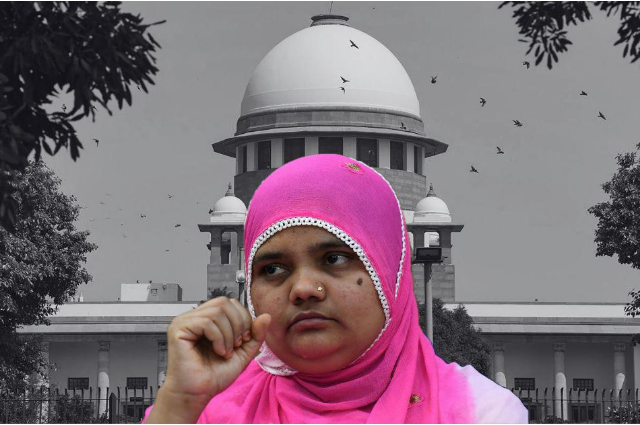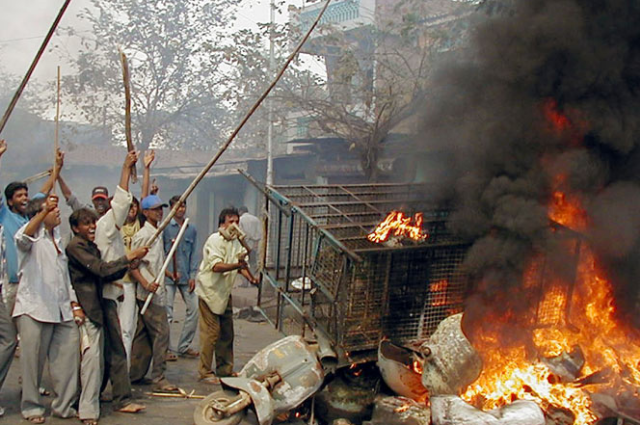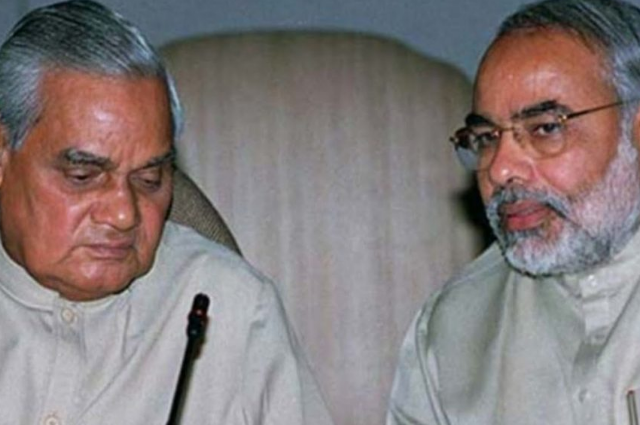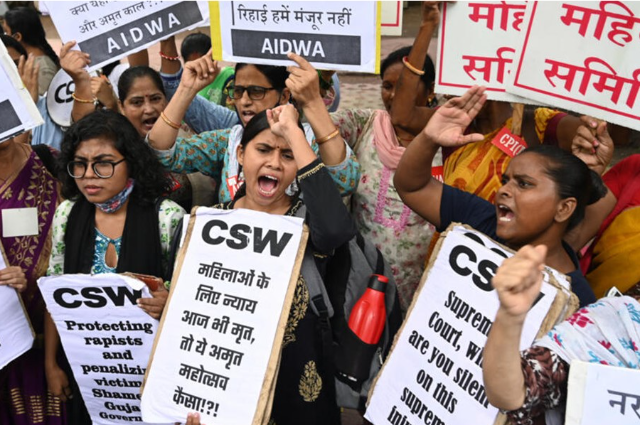
Bilkis Bano: Supreme Court verdict resonates powerfully-Scroll.in
INTRODUCTION
Bilkis Bano, a survivor of the 2002 Gujarat riots, transcends the confines of a courtroom, unfolding against a backdrop of communal tensions and political maneuvering.
This case not only spotlights the atrocities endured by one woman but also raises critical questions about the larger pursuit of justice in the face of political complexities.
THE TRAGEDY
In the crucible of the 2002 Gujarat riots, Bilkis Bano emerged as a symbol of resilience, having survived brutal gang rape and the loss of her family. As her quest for justice began, the case took on a significance far beyond its individual dimensions. It became a litmus test for the Indian judicial system's ability to address grave human rights violations.
Beyond legal intricacies, it is crucial to explore the human side of the narrative.
How did political involvement affect Bilkis Bano and other survivors? What were the enduring consequences, not just in terms of physical safety but also regarding the broader socio-economic and psychological impact?
BACKGROUND & CASE
Bilkis Bano, a young Muslim woman, witnessed unimaginable atrocities during the 2002 Gujarat riots, which unfolded in the aftermath of the Godhra train burning incident. The heinous crimes committed against her serve as a stark reminder of the vulnerability of individuals caught in the crossfire of communal tensions.
As the violence erupted, Bilkis Bano became a victim of unspeakable brutality, enduring a horrific gang-rape and losing several family members in the process. The trauma inflicted upon her was not merely a personal tragedy but a reflection of the widespread human rights abuses that marred those tumultuous day.

To what extent do you believe political factors may have influenced the handling of the Bilkis Bano case, and what impact could this have had on the pursuit of justice?
As we peel back the layers of the Bilkis Bano case, we find ourselves confronted not only with the personal tragedy of one woman but with the broader implications for justice, accountability, and the role of politics in the face of communal discord. The quest for answers continues, urging us to critically examine the intersections of law, politics, and human rights in our collective pursuit of a just society.
POLITICAL CLIMATE DURING THE GUJARAT RIOT
The 2002 Gujarat riots were marred by communal tension and violence, leaving an indelible mark on the nation's conscience. To understand the depths of the tragedy, one must scrutinize the political atmosphere prevailing at that time. Political figures held sway over the course of events, influencing not only public sentiment but also the actions of law enforcement agencies.

- Role of Political Figures
Key political figures emerged as influential players in the unfolding drama. The then Chief Minister of Gujarat, Narendra Modi, faced scrutiny for his alleged role in the handling of the riots. Questions lingered about the extent of political involvement and whether it extended to a systemic failure in preventing, or worse, perpetuating the violence.
How did the political leadership's response to the Gujarat riots impact the subsequent investigations, especially in cases like Bilkis Bano's?
- Influence on Events
The actions of political figures during the 2002 Gujarat riots were not merely rhetorical; they held tangible consequences. Reports surfaced of alleged complicity, with accusations of interference in the functioning of law enforcement agencies investigating cases related to the violence. Bilkis Bano's case, in particular, became a focal point of attention, with questions raised about the extent of political interference in the pursuit of justice.
- To what extent did the political narrative shape the experiences of survivors and impact the broader community in the aftermath of the riots?
ALLEGATION OF POLITICAL INTERFERENCE
At the state level, the political climate was charged, with questions lingering about the role of politicians in either fueling or quelling the communal tensions that erupted into violence.
Were political figures orchestrating a strategic narrative to shield certain individuals involved in the case?
On a national scale, the echoes of political influence reached far beyond the state borders.
How did the political dynamics at the center impact the course of the investigation and subsequent legal proceedings?
Were there concerted efforts to dilute the gravity of the charges or shield the accused from the clutches of justice?
- Manipulating Legal Proceedings
Allegations of attempts to manipulate legal proceedings cast a shadow over the quest for justice in the Bilkis Bano case.
Were there instances where the legal process became a battleground, with political forces pulling the strings behind the scenes?
Did this interference compromise the objectivity of investigations, leaving the survivors and their pursuit of justice at a disadvantage?
- Hindering the Pursuit of Justice
The pursuit of justice for Bilkis Bano and others caught in the crossfire faced a sinister stalemate as allegations of hindrance by political forces emerged.
What roadblocks did the survivors encounter, and to what extent did political interference impede the delivery of justice? Were there instances where the scales of justice were tipped by the hands of those who wielded political power?
- Impact on Justice and Society
As we scrutinize the allegations of political interference, it is essential to unravel the broader impact on Bilkis Bano and other survivors.
How did the alleged interference shape their access to justice, and what lasting scars did it leave on their lives? Beyond the courtroom, what ripple effects did political machinations have on the larger fabric of society, trust in institutions, and the pursuit of communal harmony?
The Bilkis Bano case beckons us to question, reflect, and demand accountability in the face of allegations that strike at the core of our collective pursuit of justice.
IMPACT ON BILKIS BANO AND SURVIVORS
The scars left by the horrific events of the Gujarat riots run deep, and the psychological toll on Bilkis Bano and survivors is immeasurable. Beyond the courts, the haunting memories of violence and loss linger, casting a long shadow over their everyday lives.
How has the prolonged legal battle affected the mental resilience of these survivors? Can justice truly heal the wounds inflicted by communal violence?

Never-ending ordeals of women like Bilkis Bano, Muslim survivors of riots-Madhyamam
- Social Fallout
Communal violence doesn't just rupture individual lives; it tears at the fabric of entire communities. With political forces at play, the social repercussions for Bilkis Bano and survivors have been intricate and far-reaching.
Has justice, or the lack thereof, altered the way these survivors are perceived within their communities? How has the case influenced societal attitudes towards victims of communal violence?
- Economic Struggles
The aftermath of the Gujarat riots extends beyond the emotional and social realms; it has seeped into the economic well-being of Bilkis Bano and others. The disruptions caused by violence often translate into economic hardships, raising questions about the adequacy of reparations and support systems.
How has the economic fallout of the riots affected the survivors' ability to rebuild their lives? What role should the state play in addressing the economic dimensions of communal violence?
The Lingering Questions

Photo by Louis Galvez on Unsplash
- How can the legal system better address the holistic needs of survivors beyond the courtroom?
- What role should the government play in providing comprehensive support, both economic and psychological, to those affected by communal violence?
- Can justice ever be truly served when political forces cast a looming shadow over the legal proceedings?
The interplay of politics and justice raises profound questions about the ability of the legal system to address the multifaceted impact of communal violence.
As the case continues to unfold, these questions linger, demanding not just answers but a collective introspection on the broader societal responsibilities that come with the pursuit of justice.
